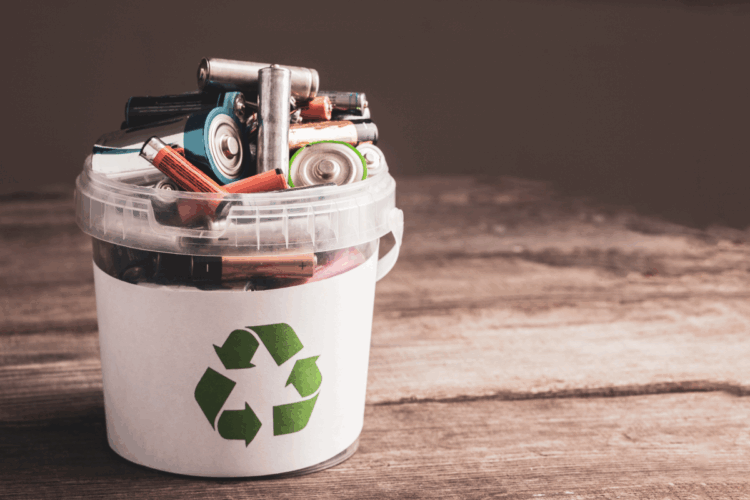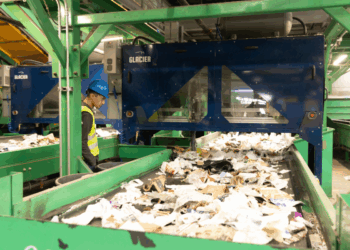Colorado is adding extended producer responsibility for another material stream to its state laws, this time for batteries.
SB 163 passed both chambers with bipartisan support and is now on the governor’s desk. The final votes on the House-amended bill were 44-21 in the House and 23-12 in the Senate on May 6. It had initially passed the Senate on April 29 on a vote of 21-11 with three abstaining.
Recycle Colorado said in a statement that “we want to give a special thanks to everyone who helped us talk to our legislators about the importance of keeping batteries out of the trash and recycling and capturing the materials to be used in future batteries.”
Recycle Colorado was among several organizations that backed the bill, including the National Waste and Recycling Association Rocky Mountain Chapter, Eco-Cycle and Green Latinos. Boulder County also supported the bill.
“Our organizations share a desire to make our waste systems safer and to capture the value in our discards and this cooperative effort resulted in a successful bill which will contribute to both goals in the future,” Recycle Colorado noted.
The bill covers all types of small- and medium-format batteries that can be easily removed from products and requires producers to fully fund collection, processing, transportation and recycling or responsible disposal. The first plan from the producer responsibility organization is due by July 1, 2026, and full implementation is set for 2028, with a landfill ban coming at the start of 2029.
It sets overall recycling targets of at least 60% for rechargeable batteries and 70% for primary batteries but does not specify dates. The bill also sets convenience standards and allows for multiple PROs.
“It is in the public interest of Colorado residents to reduce the inherent risk of fires that can occur when batteries are improperly disposed of and to encourage the recovery of valuable materials in batteries that can be put back into the supply chain,” the bill text states. “Without a coordinated battery stewardship program, consumers will continue to be confused about proper battery disposal.”
It also requires safety training and standards for service providers, to minimize fire risks from batteries, and allows retailers and communities to opt in to providing collection events. It prohibits retailers from charging a point-of-sale fee to cover EPR costs.
Finally, SB 163 mandates a study on how to address embedded batteries. It doesn’t cover electric vehicle batteries.































